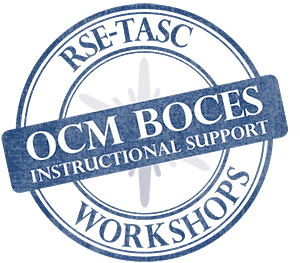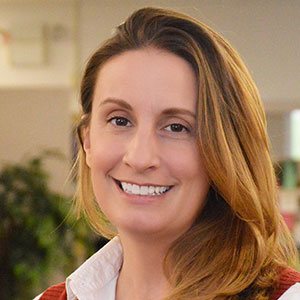

The RSE-TASC offers a wide variety of workshops at NO COST to school districts.
- Click here for a printable list of all 2016-17 workshops and to register!
- Click here for a listing of all 2016-2017workshops and to register!
Register Now!
November 2016

Mid-State Regional Special Education Technical Assistance Support Center (RSE-TASC) at OCM BOCES is one of ten technical assistance centers across NYS funded through an NYSED federal grant. The RSE-TASC provides regional workshops to districts in OCM BOCES, TST BOCES, Cayuga-Onondaga BOCES, CiTi and the Syracuse City School District free of charge. Workshops include topics on behavior, transition, nondistrict programming, special education regulation, and special education service delivery.
The Special Education Enews is a collaborative project that is shared amongst the regional trainers at the Mid-State RSE TASC. The intent of the Enews is to assist districts and educational programs in meeting the needs of all students by providing information and resources that encompass each of the specialty areas within the RSE TASC. I encourage you to forward our Special Education eNews to teachers, support staff, administrators, and anyone else you feel may benefit from the information.
To sign-up for this and other OCM BOCES Enews offerings click here.
Please contact me at jpayette@ocmboces.org to request additional topics of interest, comments or feedback.
Janel Payette
Special Education Blog
I always knew I wanted to be a teacher growing up. I remember watching my fourth grade teacher writing across the chalkboard and being in awe of her. I thought to myself, ‘I want to be just like her when I grow up.’ The moment I said it out loud, the wheels were set in motion. I was surrounded by teachers, parents, friends, etc. who encouraged me and pushed me to fulfill my dream.
I had the social capital to make my dream become a reality. Social Capital is defined as the networks of relationships among people who live and work in a particular society, enabling that society to function effectively. In school, we teach social skills to students. We teach them how to follow directions, how to read and write, and how to solve math problems. Students are taught many things. What they aren’t taught is how to build social capital. Here is a quick video explaining the concept of social capital.
As adults, we network on a regular basis. At work, at church, at a baseball game, on the bus; we talk to those around us and learn from each other. Students with disabilities often exit the school system without these networks set up. Without social capital, social isolationism sets in. That feeling of loneliness we all feel from time to time becomes a daily routine for those without social capital. Often the only people that an individual may come into contact with is a parent or a case worker, and that might only be once a week.
Think about the important people that are a part of your life. How did you meet them? Was it at school, work, through a friend? Imagine you are no longer in school, you do not have a job, and you haven’t met any friends since you left school. What would your life look like? Let that sink in.
When students are exiting the school system there needs to be a plan in place. If we invest in our students now, they will invent in themselves after. With support from the community, students can thrive and not lead a life of loneliness and isolation. Each county has an Independent Living Center, One Stop Career Center, and various agencies to support employment and independent living skills. Connect students early so that relationships are built before they leave us. We owe it to the next generation to support them and build on their social capital.
SED Updates
Special Education Service Delivery
Do you find yourself asking….what is all this chatter about standards based IEPS?
In June 2014, NYSED sent out a memo to all districts informing them of the Role of the CSE in Relation to the Common Core Learning Standards. In this memo, NYSED discusses the idea of writing IEPS aligned to the Common Core Learning Standards and lists a 7 step process. In order to do this, special education teachers must have a good understanding of what the State Standards are asking students to be able to know and do at a given grade level. Once teachers understand exactly what the standards are asking students to know and do, teachers can then infuse that information into the IEP. This seems like an overwhelming task, but there are resources to help teachers understand what the standards are and what they are asking the students to do.
Check out these resources! The first two must be purchased but the last ones are free!
- Battelle for Kids – Vertical Progression Guide, ELA K-12
Battelle for Kids-Vertical Progression Guide, ELA K-12 - Battelle for Kids – Vertical Progression Guide, Math K-12
Battelle for Kids-Vertical Progression Guide, Math K-2 - ELA I Can Statements for Each Grade Level **an awesome resource** - ELA I Can Statements for Each Grade Level
- Math I Can Statements for K-8
Math I Can Statements for K-8
Transition and CDOS
“Close the gap” they say. “Make sure students have the skills they need.” This is easier said than done! Let’s think BIG PICTURE. What does a student need to do in order to become (fill in the blank for a chosen career)? As Transition Specialists, this is the task we set out to achieve on a daily basis. The missing link around transition planning for students is referred to as “skills discrepancy analysis”, or in laymen’s terms, what skills does a career require and what skills does the student have (is there a gap)? This tool will allow you to properly plan with students and have meaningful conversations about where these gaps occur. More importantly, it allows for time to determine whether the skill gaps can be addressed in the remaining school years or if another career should be taken into consideration. Allow students to see the big picture with you as their supporter.
Behavior
In the last four Enews issues, we shared evidence-based classroom management practices that will help to establish an optimal learning environment for all students, and especially for students with disabilities. These four evidence-based practices are:
- Maximizing structure in the classroom
- Teaching positive behavior
- Actively engage students in observable ways
- Create a continuum of responses to appropriate behavior
A fifth evidence-based practice within the classroom is to establish a continuum of responses to respond inappropriate behavior. Before teachers assume that a student is being non-compliant, it is important to ensure that the student has been “set up for success” to exhibit the appropriate behavior. Namely, teachers should first confirm that the student has been taught the appropriate behavior (and reinforced for it), as well as making sure that the student has the skills to follow the directive. Restating and re-teaching the behavioral skill are examples of error corrections that should be employed first before implementing any type of mild consequence. Office discipline referrals should be the last resort along the continuum. Utilizing a ratio of five responses to appropriate behavior for every one response to inappropriate behavior will help error corrections go more smoothly.
For more detailed information about how to respond to inappropriate behavior through a continuum of responses, as well as other classroom management strategies, we highly recommend reading Class-wide Positive Behavior Interventions and Supports by Brandi Simonsen and Diane Myers.
Follow our E-News section in the upcoming months for additional evidence-based practices of classroom management. Also, visit our website to find out when we will be offering our two-day regional training for Classroom Management I: Utilizing Evidence-Based Practices to Support Student Behavior!
Special Topics
Alternative school programs are certainly not strangers to working with students with mental health issues, however, the topic is receiving an increased amount of attention due to impending changes from NYSED around the possible addition of a mental health curriculum to standard high school health classes. Mental Health involves not only knowing signs and symptoms of possible mental illness and intervening early, but it also includes understanding how to optimize and maintain good mental health, reduce the stigma around mental health issues and helping all students to be self-advocates. Here is a link to a sample curriculum for teaching students about mental health.
Preschool Behavior
Now that we’re really into the swing of a new school year, teachers may start to see some challenging behaviors emerging in their young students. Often, these behaviors are related to social and emotional skill deficits. We are in a prime position to teach these skills to preschool students in our classrooms! In this, one of my favorite resources, Lise Fox and Rochelle Harper Lentini take a look at where to begin when it comes to teaching social skills. You will find resources for reframing challenging behavior and explicitly teaching social skills. This read is well worth your time!
Email Janel Payette at jpayette@ocmboces.org to request additional topics of interest!
Follow Us Online |
||||||
| OCM BOCES Instructional Support (IS) offers specialized E-Newsletters centered around our different departments. To view the choices or to sign up, visit our E-News Sign-up page. You may unsubscribe at any time. | Visit our Website |
|||||